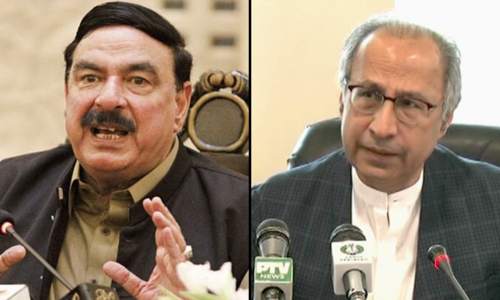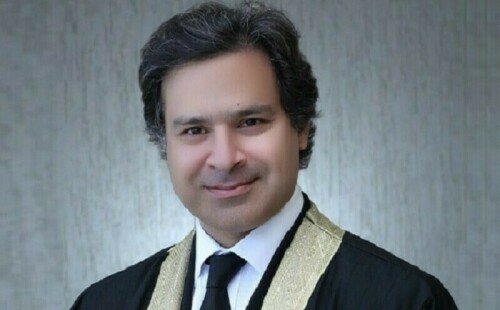THE kaptaan has struck again (or shall I say bowled again but then it’s best if I stay away from sporting terms). The federal cabinet has been reshuffled again — as would be players — to see if they perform better in a different position. Decades of training as a sportsman have not yet been overcome by his three years or so as prime minister. Imran Khan is still trying to see if he can fit some of his players better in some slots, where they might just shine and sparkle, either because he believes in them or because he is stuck with them. That ministerial positions and governance may require stability to understand complex issues before being able to deliver is an idea he is not willing to accept as such.
But the continuous reshuffling has also left untouched many individuals who have enjoyed a relatively comfortable stay in the ministry to which they were first appointed. For instance, portfolios such as education, human rights, defence and foreign affairs have not been touched. They have stayed with the same PTI stalwarts since the beginning. With some of these choices, the prime minister’s aim has been not to run a ministry well but to keep a key leader quiet or out of the way. Here he seems to have succeeded. But this hardly counts as governance for it is simply politics he is now more comfortable with.
The frequent changes reveal what the PM himself sees as the biggest challenges.
On the other hand, the frequent changes reveal what kaptaan himself sees as the biggest challenges — all things economy-related as well as information. For contrast, consider the law ministry where there were reports of Khan’s unhappiness with the minister but no change has taken place despite the government claiming it has plans to reform the legal system.
To return to finance, the second change in the key ministry is interesting for how it differs from the first. At the time of Asad Umar’s removal, the rumours about him being replaced in finance had been doing the rounds for some time. In addition, his time at the ministry was dogged by heavy criticism from the press as well as within the party. So, one can say the change was sudden but not out of the blue.
This time, the discussion over the state of the economy was far less intense even though there was some brouhaha over the State Bank’s autonomy bill (which has died down since). Some of the regular economy watchers had been commenting on how the latest negotiations with the IMF were going to stifle the little improvement the economy had witnessed but such serious commentary was not as widely debated as earlier when every talk show seemed to be about the state of the economy. And there were next to no rumours about Hafeez Shaikh’s innings being near the end.
In retrospect, it seems that Khan too has had his fill of ‘stabilisation’ and wanted ‘growth’ — the latter not being among Shaikh’s interests or strengths. Hence, the change. Whether Shaukat Tarin can deliver on the twin challenges of keeping the IMF on board as well as spending enough to ensure some hope for the next election remains to be seen. (There is now little time left for reform, say most experts.)
But what no one seems to have been able to explain is if the change of heart about Hafeez Sheikh was limited to Khan. Or if it extended beyond Islamabad. And whether this tabdeeli of hearts is what partially led to Yousuf Raza Gilani’s victory in the Senate election. But this may be one of those stories that will always remain a conspiracy theory.
Read: Hafeez Sheikh deserved a better send-off than the one he was given
The energy ministry is a similar challenge for the government and hence has seen the most changes — from Nadeem Babar to Tabish Gauhar to Omar Ayub to Hammad Azhar. And chances are that more may continue to come if the (relatively) new faces don’t weave some magic.
And the third challenge is information, though it is debatable if it is a real one. Indeed, information is a headache for most governments and a thankless job for the individual holding it. For in this day and age, it is next to impossible to expect a department to ensure ‘good coverage’ of a government, considering the ever-increasing number of channels, prime time anchors and competition between political players as they woo entire news channels.
But it seems as if there little else the minister is expected to do. And by now, the reforms the PTI seemed to have spoken about the last time Fawad Chaudhry held the portfolio have long been abandoned as have the promises of fixing state broadcasters such as PTV. This time around, there is little indication the prime minister expects him to do more than simply be a spokesman which is what this ministry has been reduced to.
Apart from the challenges, the cabinet reshuffles reveal another of Khan’s struggles, though it is a bit of a sideshow. It is to find slots for (or shall one say park) certain allies. Khusro Bakhtiar is a case in point. He headed the south Punjab electables who joined PTI shortly before the 2018 election, providing much-needed numbers for the government that was eventually formed. It seems he was promised a ministry in return, for why else would he continuously be shunted from one portfolio to another, with each move seeming like a demotion? He began his ministerial career in planning, which was then given to Asad Umar amid stories of how the Chinese were not happy with Bakhtiar. He was then handed food security, which he held for barely five months before being moved to economic affairs, where he lasted a year and is now going to head industries and production. Will this prove to be a more lasting home for him? It is hard to say.
Indeed, between Khan’s belief that shuffling players can lead to a winning combination and the challenges on the economic front, there is no guarantee that those who have been brought in are here to stay. These key positions today may continue to bid new faces farewell and welcome yet newer people as the PTI struggles to ‘improve’ the economy.
The writer is a journalist.
Published in Dawn, April 20th, 2021
















































